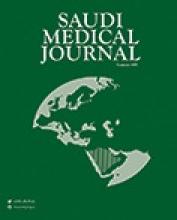Abstract
OBJECTIVE: To evaluate the efficacy of hepatitis B virus (HBV) vaccine in susceptible spouses at the time of marriage.
METHODS: From April 2003 to December 2005, 60 cases of susceptible wives of infected husbands and 32 cases of susceptible husbands of the infected wives in Babol north of Iran, received recombinant hepatitis B (HB) vaccine at the time of marriage followed with the second and third doses at 1, and 6 months. Post vaccination tests for hepatitis B surface antigen (HBsAg), anti-HBs and anti-hepatitis B core (HBc) were assessed 2 months of the later dose. The HBs antibody levels of ≥10 mIU/ml was considered to be protective. Those with anti-HBs levels of <10 mIU/l received the second series of HBV vaccination.
RESULTS: The mean age of the infected husbands was 26.4 ± 6 years and for infected wives were 22.7 ± 4.7 years. Seventy (76.1%) cases were HBsAg and anti-hepatitis B e (HBe) positive. Among the recipients of vaccine, the mean age of females was 19 ± 3.8 years and in males was 25.2 ± 4.8 years (p=0.007). The HBs antibody levels of >/= 10 mIU/ml were detected in 79 (85.9%) cases. The HBs antibody levels of >100 mIU/ml were developed in 76.7% males and in 75% females (p=0.430). Twelve (13%) cases were non-responder and among them 11 (91.7%) cases responded to the second course of HBV vaccination. The HBs and HBc antibodies were developed in one case.
CONCLUSION: This study shows that administration of hepatitis B vaccine at the time of marriage prevents the transmission of hepatitis B virus in susceptible spouses.
- Copyright: © Saudi Medical Journal
This is an open-access article distributed under the terms of the Creative Commons Attribution-Noncommercial-Share Alike 3.0 Unported, which permits unrestricted use, distribution, and reproduction in any medium, provided the original work is properly cited.






